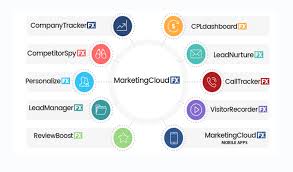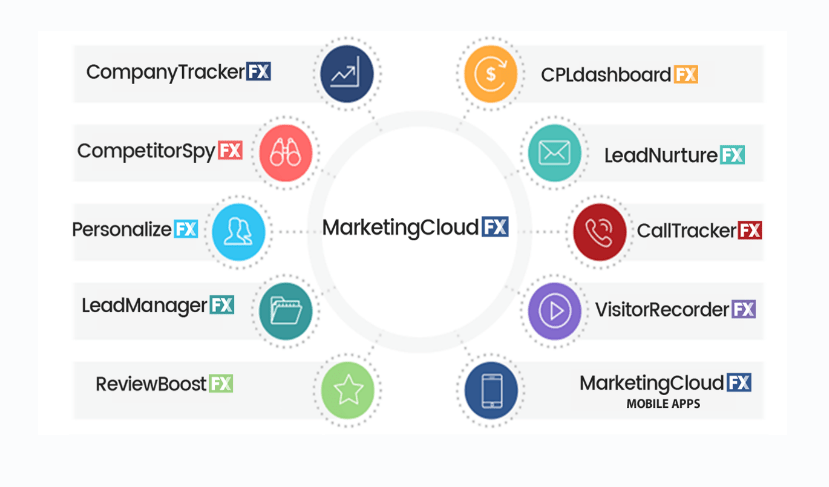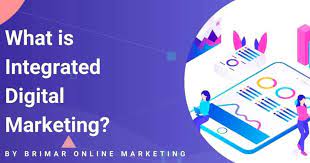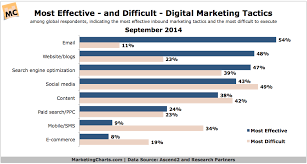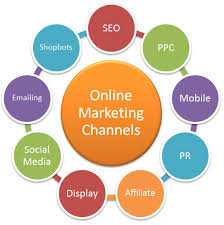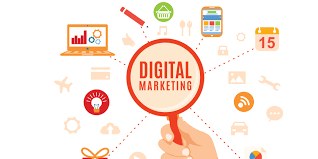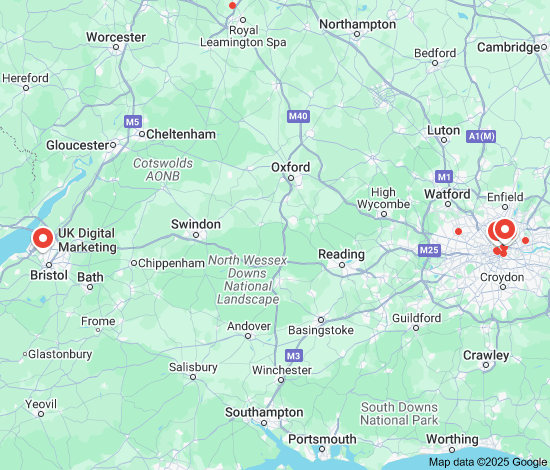The Power of Online Marketing
The Power of Online Marketing
In today’s digital age, online marketing has become a vital tool for businesses looking to reach and engage with their target audience effectively. With the widespread use of the internet and social media platforms, online marketing offers a range of opportunities to promote products and services, build brand awareness, and drive sales.
Benefits of Online Marketing
One of the key advantages of online marketing is its ability to reach a global audience. Through various digital channels such as websites, social media, email campaigns, and search engine optimisation (SEO), businesses can connect with potential customers across different geographical locations.
Online marketing also provides valuable insights into consumer behaviour and preferences through data analytics. By tracking website traffic, click-through rates, conversion rates, and other metrics, businesses can refine their marketing strategies for better results.
Types of Online Marketing Strategies
There are several effective online marketing strategies that businesses can utilise to enhance their online presence:
- Search Engine Optimisation (SEO): Optimising website content to improve search engine rankings and increase organic traffic.
- Pay-Per-Click (PPC) Advertising: Placing ads on search engines or social media platforms and paying only when users click on them.
- Social Media Marketing: Engaging with audiences on platforms like Facebook, Instagram, Twitter, and LinkedIn to build brand awareness and drive engagement.
- Email Marketing: Sending targeted emails to subscribers with promotional content or updates about products and services.
- Content Marketing: Creating valuable and relevant content such as articles, blogs, videos, infographics to attract and retain customers.
The Future of Online Marketing
As technology continues to evolve rapidly, the landscape of online marketing is constantly changing. Businesses need to adapt to new trends such as voice search optimisation, influencer marketing, artificial intelligence tools for personalisation, and more to stay ahead in the competitive digital market.
In conclusion, online marketing offers endless possibilities for businesses to connect with their target audience in meaningful ways. By leveraging the right strategies and tools effectively, businesses can drive growth, increase brand visibility, and achieve long-term success in the digital realm.
Comprehensive Guide to Online Marketing: Top 19 Frequently Asked Questions
- What is online marketing its importance?
- What are the three types of online marketing?
- What are the 4 types of online marketing?
- How can we do online marketing?
- What is online marketing and its benefits?
- How can I get online marketing?
- What is the best online marketing?
- What type of marketing is online?
- How do we do online marketing?
- What are the advantage of online marketing?
- What are types of online marketing?
- Who is the best in online marketing?
- What is online marketing and example?
- How to start online marketing?
- How do I start online marketing?
- What is online marketing and its types?
- How to do online marketing for beginners?
- How can I start online marketing?
- What are the benefits of online marketing?
What is online marketing its importance?
Online marketing, also known as digital marketing, refers to the strategies and techniques used to promote products or services on the internet. Its importance lies in its ability to reach a vast audience across various online platforms, allowing businesses to connect with potential customers in a cost-effective and measurable way. Online marketing enables businesses to enhance brand visibility, engage with their target audience, generate leads, drive sales, and build long-term relationships with customers. By leveraging the power of online marketing tools such as SEO, social media, email campaigns, and content marketing, businesses can stay competitive in today’s digital landscape and achieve their marketing objectives effectively.
What are the three types of online marketing?
In the realm of online marketing, there are three primary types of strategies that businesses commonly utilise to enhance their digital presence and engage with their target audience effectively. These include Search Engine Optimisation (SEO), which focuses on improving website visibility and ranking on search engine results pages; Pay-Per-Click (PPC) Advertising, where businesses pay for ad placements and only incur costs when users click on their ads; and Social Media Marketing, which involves leveraging platforms like Facebook, Instagram, and Twitter to connect with audiences, build brand awareness, and drive engagement. Each of these online marketing approaches offers unique benefits and plays a crucial role in helping businesses achieve their marketing goals in the digital landscape.
What are the 4 types of online marketing?
In the realm of online marketing, there are four key types of strategies that businesses often utilise to enhance their digital presence and reach their target audience effectively. These include Search Engine Optimisation (SEO), which focuses on improving website visibility in search engine results; Pay-Per-Click (PPC) Advertising, where businesses pay for ad placements based on user clicks; Social Media Marketing, involving engagement and promotion on platforms like Facebook and Instagram; and Email Marketing, which entails targeted communication via email campaigns to engage subscribers with relevant content. Each type plays a crucial role in a comprehensive online marketing strategy, offering unique benefits and opportunities for businesses to connect with their audience in meaningful ways.
How can we do online marketing?
To effectively engage in online marketing, businesses can implement a variety of strategies tailored to their goals and target audience. Starting with a well-designed website that is optimised for search engines is crucial, as it serves as the foundation for online presence. Leveraging social media platforms to connect with customers, create engaging content, and run targeted advertising campaigns can help boost brand awareness and drive traffic. Email marketing is another powerful tool for nurturing leads and maintaining customer relationships. Additionally, exploring paid advertising options like Google Ads or social media ads can further expand reach and generate leads. Continuous monitoring of key performance metrics and adapting strategies based on data insights are essential for successful online marketing campaigns.
What is online marketing and its benefits?
Online marketing, also known as digital marketing, refers to the promotion of products or services using various online channels such as websites, social media, email campaigns, and search engine optimisation (SEO). Its benefits include the ability to reach a global audience, target specific demographics with precision, track and analyse campaign performance in real-time, and cost-effectiveness compared to traditional marketing methods. Online marketing empowers businesses to build brand awareness, drive website traffic, generate leads, and ultimately increase sales by engaging with customers in a more personalised and interactive manner across the digital landscape.
How can I get online marketing?
To embark on online marketing, businesses can explore various avenues to establish their digital presence effectively. One common approach is to engage with digital marketing agencies or professionals who specialise in online marketing strategies. These experts can provide tailored solutions such as search engine optimisation (SEO), pay-per-click (PPC) advertising, social media marketing, email campaigns, and content creation to enhance brand visibility and drive engagement. Additionally, businesses can leverage online resources, attend webinars or workshops, and conduct research to gain insights into the latest trends and best practices in online marketing. By investing time and resources into developing a comprehensive online marketing strategy, businesses can position themselves for success in the competitive digital landscape.
What is the best online marketing?
When it comes to determining the best online marketing strategy, there is no one-size-fits-all answer. The effectiveness of an online marketing approach can vary depending on various factors such as the nature of the business, target audience, budget constraints, and overall marketing goals. Some businesses may find success with search engine optimisation (SEO) to improve visibility in search results, while others might benefit more from social media marketing to engage with their audience. Ultimately, the best online marketing strategy is one that aligns closely with the specific needs and objectives of a business, utilising a mix of digital channels and tactics to achieve optimal results.
What type of marketing is online?
Online marketing, also known as digital marketing, encompasses various strategies and tactics used to promote products or services on the internet. It includes a wide range of activities such as search engine optimisation (SEO), pay-per-click (PPC) advertising, social media marketing, email marketing, content marketing, and more. Online marketing leverages the power of digital channels to reach and engage with target audiences effectively, driving brand awareness, generating leads, and ultimately increasing sales. By utilising online platforms and tools, businesses can tailor their marketing efforts to suit their specific goals and connect with potential customers in a dynamic and measurable way.
How do we do online marketing?
When it comes to online marketing, the key question of “How do we do online marketing?” is a common one that many businesses face. Online marketing involves a strategic approach to promoting products or services using various digital channels such as websites, social media, email campaigns, and search engine optimisation (SEO). To effectively do online marketing, businesses need to identify their target audience, set clear objectives, create engaging content, utilise different online marketing strategies like SEO, PPC advertising, social media marketing, email campaigns, and content marketing. It is essential to continuously analyse data and metrics to measure the effectiveness of campaigns and make necessary adjustments for optimal results. By adopting a holistic approach and staying abreast of the latest trends in online marketing, businesses can successfully navigate the digital landscape and achieve their marketing goals.
What are the advantage of online marketing?
Online marketing offers numerous advantages for businesses seeking to enhance their digital presence and reach their target audience effectively. Some key benefits include the ability to reach a global audience, cost-effectiveness compared to traditional marketing methods, real-time data analytics for tracking performance and making informed decisions, increased brand visibility and awareness through various digital channels, targeted advertising to specific demographics or interests, and the flexibility to adapt and refine strategies based on consumer behaviour and market trends. Overall, online marketing empowers businesses to connect with customers in meaningful ways, drive engagement, and achieve measurable results in the competitive online landscape.
What are types of online marketing?
There are various types of online marketing strategies that businesses can employ to enhance their digital presence and engage with their target audience effectively. Some common types include Search Engine Optimisation (SEO), which focuses on improving website visibility in search engine results; Pay-Per-Click (PPC) Advertising, where businesses pay for ads that users click on; Social Media Marketing, involving engagement with audiences on platforms like Facebook and Instagram; Email Marketing, utilising targeted emails to reach subscribers with promotional content; and Content Marketing, creating valuable content to attract and retain customers. Each type of online marketing strategy offers unique benefits and can be tailored to suit the specific goals of a business.
Who is the best in online marketing?
The question “Who is the best in online marketing?” is subjective and can vary depending on individual needs and preferences. In the realm of online marketing, there are numerous agencies, professionals, and companies that excel in different aspects of digital marketing such as SEO, social media marketing, content marketing, and more. The key to finding the best fit for your specific requirements lies in researching and evaluating potential candidates based on their expertise, track record, client testimonials, and alignment with your business goals. Ultimately, the best in online marketing is subjective and depends on finding a partner who can deliver results tailored to your unique needs.
What is online marketing and example?
Online marketing, also known as digital marketing, refers to the promotion of products or services using digital channels such as websites, social media, email, and search engines. An example of online marketing is running targeted Facebook ads for a clothing brand to reach a specific demographic of potential customers. By utilising online marketing strategies like social media advertising, businesses can increase brand visibility, engage with their target audience, and drive traffic to their website to ultimately boost sales and conversions in the digital space.
How to start online marketing?
Embarking on the journey of online marketing can be both exciting and daunting for businesses seeking to establish a strong digital presence. To start online marketing effectively, it is crucial to first define clear objectives and target audience. Conducting thorough market research to understand consumer behaviour and preferences is essential in crafting a tailored strategy. Building a user-friendly website, creating engaging content, and utilising various digital channels such as social media and email marketing are key steps in initiating an online marketing campaign. Consistent monitoring of performance metrics and making necessary adjustments based on data insights will help businesses refine their strategies for optimal results in the dynamic online landscape.
How do I start online marketing?
To begin online marketing, it is essential to first define your goals and target audience. Conducting market research to understand your audience’s preferences and behaviour can help tailor your strategies effectively. Establishing a strong online presence through a user-friendly website and active social media profiles is crucial. Utilising various digital marketing channels such as SEO, PPC advertising, social media marketing, and email campaigns can help drive traffic and engage with potential customers. Consistent monitoring of performance metrics and adapting strategies based on data analysis is key to achieving success in online marketing.
What is online marketing and its types?
Online marketing, also known as digital marketing, encompasses a range of strategies and techniques used by businesses to promote their products or services online. It involves leveraging various digital channels such as websites, social media platforms, search engines, email campaigns, and content creation to reach and engage with target audiences. Some common types of online marketing include Search Engine Optimisation (SEO) to improve website visibility in search engine results, Pay-Per-Click (PPC) advertising for targeted online ads, Social Media Marketing to connect with audiences on platforms like Facebook and Instagram, Email Marketing for personalised communication with subscribers, and Content Marketing through valuable content creation to attract and retain customers. Each type of online marketing plays a crucial role in helping businesses establish a strong online presence and drive growth in the competitive digital landscape.
How to do online marketing for beginners?
For beginners looking to delve into the world of online marketing, it’s essential to start with a solid foundation. Begin by understanding your target audience and defining clear goals for your online marketing efforts. Research different online marketing strategies such as search engine optimisation (SEO), social media marketing, and content marketing to determine which ones align best with your objectives. Create a user-friendly website that showcases your products or services effectively and optimise it for search engines. Consistent and engaging content creation across various platforms can help attract and retain customers. Finally, track your progress using analytics tools to measure the effectiveness of your campaigns and make necessary adjustments for continuous improvement.
How can I start online marketing?
To embark on your online marketing journey, it is essential to begin with a solid strategy. Start by defining your goals and target audience to tailor your approach effectively. Establish a strong online presence through a user-friendly website and active engagement on social media platforms. Explore various online marketing channels such as search engine optimisation (SEO), pay-per-click (PPC) advertising, email marketing, and content creation to reach and connect with your audience. Continuous monitoring and analysis of key performance indicators will help you refine your strategies for optimal results. Remember, consistency, creativity, and adaptability are key to succeeding in the dynamic world of online marketing.
What are the benefits of online marketing?
Online marketing offers a multitude of benefits for businesses seeking to enhance their digital presence and reach a wider audience. Some key advantages include the ability to target a global audience, cost-effectiveness compared to traditional marketing methods, measurable results through data analytics, increased brand visibility and awareness, improved customer engagement through various digital channels, and the flexibility to adapt and refine strategies in real-time based on performance metrics. By leveraging online marketing strategies such as SEO, social media marketing, email campaigns, and content creation, businesses can drive traffic, generate leads, boost conversions, and ultimately grow their online presence and revenue streams.

